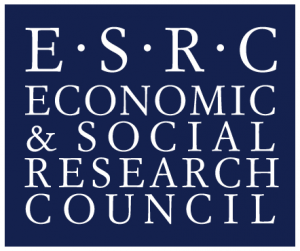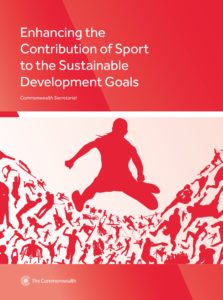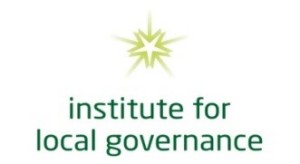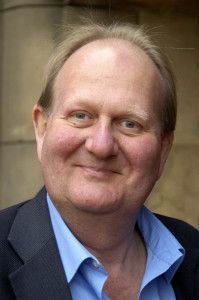The Policy Research Group’s evaluation of the 2015 Lumiere has been influential in garnering support from Durham County Council for the staging of a fifth Lumiere event in 2016.  The report, by Gordon Allinson, Paul Braidford and Maxime Houston, which was received by the County Council earlier this year shows that the event generated almost a £10m boost to the regional economy. Furthermore, as the Leader of Durham County Council, Councillor Simon Henig, stated – “More than 90 per cent of those surveyed rated Lumiere 2015 as ‘excellent’ or ‘very good’ and it said it ‘made them happy with 80 per cent of visitors saying they planned to come back.” It is hoped that the Cabinet will approve investment of £100,000 in a future Lumiere on the basis of the benefits identified in the report. See the full story online in the Northern Echo, 8th June, 2016: click here.
The report, by Gordon Allinson, Paul Braidford and Maxime Houston, which was received by the County Council earlier this year shows that the event generated almost a £10m boost to the regional economy. Furthermore, as the Leader of Durham County Council, Councillor Simon Henig, stated – “More than 90 per cent of those surveyed rated Lumiere 2015 as ‘excellent’ or ‘very good’ and it said it ‘made them happy with 80 per cent of visitors saying they planned to come back.” It is hoped that the Cabinet will approve investment of £100,000 in a future Lumiere on the basis of the benefits identified in the report. See the full story online in the Northern Echo, 8th June, 2016: click here.
All posts by Tony Chapman
Packaging the Past for Children, c.1750-1914
Workshop held in conjunction with the Centre for Nineteenth-Century Studies and sponsored by the Faculty of Arts & Humanities, Durham University. Organised by Dr Rachel Bryant Davies and Dr Barbara Gribling
Wednesday 6th and Thursday 7th July 2016, Senate Suite, Durham Castle, Durham University, UK
Free to Attend, and lunch will be provided. Registration Closes on 20 June 2016. To book a place, please go to this webpage: https://www.dur.ac.uk/cncs/conferences/packagingthepast/
This workshop offers an opportunity to broaden scholarly understandings of the uses of the past by comparing and assessing the cultural work of different pasts in Britain in the long nineteenth century. Short papers will investigate the materials and texts produced for and by children as well as representations of real or imagined childhoods.
Scholars from a variety of disciplines will speak about a range of pasts — from the prehistoric and classical to the Celtic, Anglo-Saxon, Medieval, Tudor and Civil War periods. Museum professionals who will demonstrate how they display and explain the nineteenth-century past to children.
Papers and presentations will juxtapose literary, material, visual and performance cultures, while the format allows generous time for discussion of future directions in the field.
Confirmed speakers: Eileen Atkins (Culture Bridge North East) Adelene Buckland (English, Kings College London) Melanie Keene (History and Philosophy of Science, Cambridge) Helen Lovatt (Classics, Nottingham) Rosemary Mitchell (History, Leeds Trinity) Joanne Parker (English, Exeter) Sarah Price (Palace Green Library, Durham) Ellie Reid (Oxfordshire History Centre) Simon Woolley (Beamish Museum) Bennett Zon (Music, Durham).
The impact of Japanese inward investment on North East England
Dzulfian Syafrian is an economist whose research covers public policy, financial institutions and economic development. Since January 2016, Dzulfian has been  undertaking his PhD at St. Chad’s College and Durham University Business School.
undertaking his PhD at St. Chad’s College and Durham University Business School.
Dzulfian’s PhD project is focusing on the impact of Japanese inward investment in manufacturing Industry on the economy and society of North East England. This research concentrates on the relationship between Japanese companies and indigenous British companies.
The project aims to:
- understand how the Japanese foreign direct investment (FDI) and the process of “Japanisation” of Western companies works in Britain;
- define what the effects of Japanese FDI are on the economy and society of the North East; and,
- determine what challenges companies face and how they overcome these.
This project is the under supervision of Professor Tony Chapman (St. Chad’s College – Durham University) and Professor John Mawson (Director of the Institute for Local Governance, Durham University Business School).
Sharing the responsibility for public health and wellbeing
Developing effective relationships between health authorities, local authorities and third sector organisations to improve public health and social wellbeing in a period of austerity
Professors Tony Chapman and Fred Robinson, together with Professor John Mawson, Director of the Institute for Local governance have won an ESRC Impact Acceleration  Award to assist health organisations, local authorities and third sector organisations to develop complementary policy and practice strategies to improve public health and social wellbeing in North East England. Based on shared learning drawing on a parallel project, Keeping it Simple, health authorities will be encouraged to reflect upon and embed new ‘ways of thinking’ about their working relationships with external organisations working in the field of health, mental health and social care.
Award to assist health organisations, local authorities and third sector organisations to develop complementary policy and practice strategies to improve public health and social wellbeing in North East England. Based on shared learning drawing on a parallel project, Keeping it Simple, health authorities will be encouraged to reflect upon and embed new ‘ways of thinking’ about their working relationships with external organisations working in the field of health, mental health and social care.
In order to better understand interactions between organisations, the work will explore activity using the following dimensions of policy and service delivery where impact can be achieved by 2019:
- Working in complementary ways (Health authorities, LAs and TSOs, to a large extent, shape the way they choose to work autonomously or collectively. But the acquisition and allocation of resources is a complex process which interferes with value systems, restricts notions of autonomy and can upset relationships. This impact of this work is to help organisations recognise when it is best to use formal partnerships, complementary relationships and when to work autonomously),
- Commissioning and procurement (Health sector organisations can achieve better impact by working with local government and TSOs in designing processes which are more responsive to innovative delivery solutions. The impact of this will be to improve the quality and outcomes arising from outsourcing decisions and thereby produce stronger social impact and best value for service delivery).
- Assessing the impact of autonomous and shared interventions (The impact of the programme will be effected by encouraging organisations to think about how to measure and make clearly evidenced judgements about the efficacy of appropriate objectives for autonomous, partnership or complementary interventions).
- New thinking about co-production (Co production can involve the pooling and sharing of ideas, effort and resources – which is hard for autonomous organisations with different levels of power and capability to achieve. The impact to be achieved in this case study centres on demonstrating where, how and with what effect health sector organisations have already developed effective joint-working models with LAs and TSOs and determine if these good practices are replicable in areas which have previously not been considered or where partnerships have failed)
The project will involve work with four health organisations (South Tees Foundation Trust, County Durham and Darlington Foundation Trust, Northumberland, Tyne and Wear NHS (mental health) Foundation, NHS Hartlepool and Stockton-on-Tees CCG), seven local authorities (Darlington Borough Council, Durham County Council, Gateshead Council, Northumberland County Council, Redcar and Cleveland Council, Stockton-on-Tees Borough Council, Sunderland City Council), and the regional third sector infrastructure organisation, Voluntary Organisations Network North East.
The contribution of sport to sustainable development
The 2030 Agenda for Sustainable Development, adopted by the United Nations General Assembly in September 2015, sets out an ambitious vision for global development. The 2030 Agenda aligns with the Charter of the Commonwealth which affirms the importance of sustainable development to ‘eradicate poverty by pursuing inclusive growth whilst preserving and con serving natural ecosystems and promoting social equity’.
serving natural ecosystems and promoting social equity’.
There is much potential for sport to contribute to sustainable development and, particularly, to help young people unlock their potential – but this requires policy makers to think critically about how they marshal the resources of national, regional and local government in Commonwealth countries whilst also capitalising upon, in complementary ways, the contribution of big business, national and international NGOs and locally based charities and civil society groups.
The Commonwealth Secretariat has recently appointed Dr Iain Lindsey and Sarah Metcalfe (School of Applied Social Sciences) and Professor Tony Chapman (Policy&Practice, St Chad’s College) to update and build upon current policy guidance, as reported in the Commonwealth Guide to Advancing Development through Sport, by Professor Tess Kay and Oliver Dudfield, published in 2013.
The work, which began in February 2016, involved a substantive evidence review followed by wide-ranging consultations with policy makers and practitioners from NGOs, Commonwealth governments and international sport organisations. The findings from the study and recommendations for future approaches to policy formulation were published in 2017 by the Commonwealth Secretariat.
The guide builds on the work of previous Commonwealth publications that have presented analysis of the role of sport in progressing sustainable development. Aimed at governmental policy-makers and other stakeholders, it provides evidenced and balanced policy options to support the effective and cost-efficient contribution of sport towards six prioritised SDGs.
The report is underpinned by an emphasis towards strengthening the means of implementation and the measurement and evaluation of progress, as emphasised by the SDGs and existing Commonwealth principles. Developed through extensive Commonwealth Secretariat-led consultation with relevant experts and organisations, it represents an important addition to the growing body of SDP publications, guides and research.
For full details of the publication, go to this web address: http://books.thecommonwealth.org/enhancing-contribution-sport-sustainable-development-goals-paperback
Is prevention better than cure?
What scope is there to encourage or invest in preventative initiatives in an age of austerity? ILG Seminar Series, Sunderland Glass Centre, held on Friday 20th May 
For many years, successive governments have considered how best to develop preventative measures to limit the cost of social problems further down the line through initiative such as place-based budgeting, public health initiatives, housing and homelessness interventions and so on.
Interventions can be costly in financial terms, but if the outcome of such initiatives is socially beneficial and economically viable in terms of future costs of service provision – then everyone wins. The problem is that preventative measures take time to show up clear benefits while national politicians can often be impatient for early results. So the importance of being able to explain potential benefits and provide early indicators of success remains important.
A further consideration, as public sector and third sector organisations face continued pressure on funding, is to ask what scope do they have to change the way they work individually, in partnership or in complementary ways in order to help different constituencies of individuals and communities to tackle the problems they face?
This seminar brought together policy makers, practitioners and academics from across a range of areas of work where preventative approaches have been established or are being trialled including homelessness, financial inclusion, mental health and wellbeing to debate these issues. Furthermore, the seminar addressed the issue of how local authorities can find out what local communities think the key issues and priorities are and then connect this intelligence with shared strategies to alleviate current or prevent future problems.
The seminar was opened by Councillor Celia Gofton, who holds the portfolio for Responsive Services and Customer Care at Sunderland City Council. The seminar was chaired by Professor John Mawson, Director of the ILG and speakers will include:
- Stephen Bell OBE, Chief Executive, Changing Lives, on tackling the consequences of homelessness for young people.
- Charlotte Burnham, Head of Scrutiny and Area Arrangements, Sunderland City Council, on keeping an ear to the ground on local community needs and priorities.
- Jane Hartley, Chief Executive, VONNE on the voluntary sector tackling health issues with a case study of the Ways to Wellness social investment bond.
- Dr Stephen MacDonald, Sunderland University, on tackling the impact of hidden disabilities on young people’s life chances.
- Graeme Oram, Chief Executive, Five Lamps Organisation, on initiatives to improve financial literacy and inclusion.
The Institute for Local Governance is a North East Research and Knowledge Exchange Partnership established in 2009 comprising the North East region’s Universities, Local Authorities, Police and Fire and Rescue Services. Further information about the content of the event can be obtained by contacting:- tony.chapman@durham.ac.uk or john.mawson@durham.ac.uk.
Presentations for each of the speakers can be found here: Charlotte Burnham[1] Graeme Oram Presentation[1] Jane Hartley[1] Stephen Macdonald Stephen Bell
Summer meeting of the Young People and Society Study Group
Following two successful meetings of the Young People and Society Study Group this academic year, our final session will take place on June 23rd from 1.45 – 4.00 in St Chad’s College.
At the start of the meeting we will be joined by Eileen Atkins – Area Manager (Tees Valley & County Durham) Culture Bridge North East who will give a brief presentation on the organisation’s work with children and young people. Eileen will give a substantive talk on the programme and its achievements in next year’s series of workshops.
Speakers will include:
Dr Barbara Gribling, Department of History, ‘Consuming the past: children and the “Age of Chivalry”, 1880-1938’
Stephanie Rich, School of Applied Social Sciences, ‘Young people’s journeys from welfare to work: uncertain destinations’
Dr Kim Jamie, School of Applied Social Sciences, “I just don’t think it’s that natural”: Young mothers’ experiences and beliefs about breastfeeding.’
The study group aims to build new cross-disciplinary relationships amongst academics from Durham University and to strengthen our understanding of young people’s position in society through sharing research and debate.
If you are an academic or research postgraduate at the University, you are very welcome to join the group by contacting tony.chapman@durham.ac.uk
Growing the Civic Core
Growing the Civic Core: How to get new people to commit to regularised voluntary social action in an age of austerity in North East England
A seminar organised by the Institute for Local Governance
Bewicks Seminar Room, Gateshead Civic Centre Friday 15 April 2016, 9.30 – 1.00
 For many years, voluntary social action has been lauded by governments around the Western world. In the UK, the desire to help build sustainable communities by promoting volunteering resulted in much investment by successive Labour governments. In recent years much less government money has been made available to support volunteering. And yet, in these very different fiscal and policy environments, the ‘civic core’ remained at much the same size and continued to include the same kinds of people.
For many years, voluntary social action has been lauded by governments around the Western world. In the UK, the desire to help build sustainable communities by promoting volunteering resulted in much investment by successive Labour governments. In recent years much less government money has been made available to support volunteering. And yet, in these very different fiscal and policy environments, the ‘civic core’ remained at much the same size and continued to include the same kinds of people.
Growing the civic core demands that new people, who have not traditionally trodden the path towards regular voluntary social action, commit time to benefit their communities. This seminar asks, how can the public sector, voluntary sector and private sector contribute in complementary ways to cement people’s commitment to voluntary action.
While there is much less money around now for the local public sector to invest directly in the promotion of volunteering, this has not diminished policy makers’ enthusiasm for encouraging people to do so. Furthermore, with local authorities drawing back from service delivery in a number of areas such as libraries, leisure facilities and community centres, voluntary support can provide one means to fill gaps in provision.
In pursuing this approach there are several legal, institutional, cultural, political and financial issues which need to be addressed. Drawing on the experience of voluntary, private and public sector stakeholders, academic research and a series of case studies on innovative practice – the seminar will explore how to break down entry barriers to the civic core and consider the potential opportunities to strengthen commitment to voluntary social action in existing and new areas of community life.
Speakers at the seminar will include: John Craggs, Chief Executive, Gentoo; Sarah Gorman, Project Director, Edbert’s House, Gateshead; Katie Hyson, Thought Leadership, Learning & Innovation Group, Barclays Bank; Julian Batson, Barclays Bank; Lindsay Murray, Service Director for Culture, Communities, Leisure and Volunteering, Gateshead Council. The seminar will be chaired by Professor Tony Chapman, St Chad’s College, Durham University.
The seminar is free to attend, but places are limited and they tend to book up quickly, so please register your attendance via: Janet Atkinson, Institute for Local Governance, Durham University janet.atkinson@durham.ac.uk.
The Institute for Local Governance is a North East Research and Knowledge Exchange Partnership established in 2009 comprising the North East region’s Universities, Local Authorities, Police and Fire and Rescue Services. Further information about the content of the event can be obtained by contacting:- tony.chapman@durham.ac.uk or john.mawson@durham.ac.uk.
Presentations from the seminar can be downloaded here: John Craggs from Gentoo – Growing the Civic CoreBarclays – Building the civic core Lindsay Murray Sarah Gorman Tony Chapman
Building new research links in Japan
Professor Tony Chapman will be making his fourth visit to Japan this March to continue working with colleagues, Professors Shibukawa, Takatani and Nakajima on a long standing comparative study of Japanese and North East England social enterprises. This work, which began in 2007 is exploring the ways that social enterprise can work in very different cultural, policy and economic environments.
Tony will also be forging new relationships with academics while in Japan to explore new possibilities for comparative research on foreign direct investment in the UK and Japan, and also to develop new comparative research on corporate social responsibility programmes by UK and Japanese companies.
During his week in Tokyo, he will visit Profesor Yoshinori Isagai, Executive Director, Keio Research Institute; Professor Kanji Tanimoto, School of Commerce, Waseda University; Professor Motohide Takeda, Department of Economics, Teikyo University; and Professor Hiroshi Ishida, Institute of Social Sciences, Tokyo University.
Professor Chapman will be visiting Lori Henderson at the British Chamber of Commerce Japan (BCCJ) to continue their conversation on the experiences of UK firms which have established themselves in Japan and will attend an event at the Tokyo Hilton, Shinjuku, addressed by Governor Masuzoe on city business strategy. It will also be the cherry blossom viewing season when Tokyo is at its most beautiful.
The North East Devolution Deal

Over the past few months, the Government has been developing proposals for the devolution of some powers from London to the North East. It’s a modest amount of devolution and it comes with strings attached. If the region’s local councils sign up to it, they will have to agree to have a new region-wide elected mayor. Some people see the devolution deal as a positive development that could lead on to more devolved power in the future. Others don’t like it; they think local democracy could be weakened and that the regional combined authority of councils will get the blame for Government spending cuts.
The North East’s councils have provisionally signed up to the deal. However, Durham County Council decided that they wanted to gauge public opinion before making a final decision.
The Institute for Local Governance was asked by Durham County Council to help with the public consultation. Professor Fred Robinson, St Chad’s College, was commissioned to do the job. He drew up unbiased information about what’s on offer and devised questions to find out what people think of it. The Council sent the information and the questions to every elector in County Durham.

There was an impressive response. Nearly 82,000 people answered the questions, a response rate of almost 22%, which is very good for this kind of exercise. 60% said devolving some power and resources to the North East would be a step in the right direction. So there is support for the deal. But people are cautious about how much power the mayor would have and not sure that devolution would actually make much difference. Now it’s up to the Council to consider the results and make a final decision.
Fred commented: ‘It was an interesting task. I had to design the consultation so that people would understand the issues and want to respond. I was very pleased with the response and I think the answers will help the Council decide what to do. I’m glad we’ve been able to help’.
